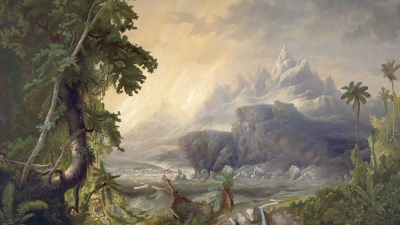
Rainforests are found all over the world — in West and Central Africa, South and Central America, Indonesia, Southeast Asia and Australia — on every continent except Antarctica. They are vitally important, producing most of the oxygen we breathe and providing habitat for half of the planet’s flora and fauna.
Rainforests are critically important to the well-being of our planet. Tropical rainforests encompass approximately 1.2 billion hectares (3 billion acres) of vegetation and are sometimes described as the Earth’s thermostat.
Rainforests produce about 20% of our oxygen and store a huge amount of carbon dioxide, drastically reducing the impact of greenhouse gas emissions. Massive amounts of solar radiation are absorbed, helping regulate temperatures around the globe. Taken together, these processes help to stabilize Earth’s climate.
Rainforests also help maintain the world’s water cycle. More than 50% of precipitation striking a rainforest is returned to the atmosphere by evapotranspiration, helping regulate healthy rainfall around the planet. Rainforests also store a considerable percentage of the world’s freshwater, with the Amazon Basin alone storing one-fifth.
Rainforests provide us with many products that we use every day. Tropical woods such as teak, balsa, rosewood, and mahogany are used in flooring, doors, windows, boatbuilding, and cabinetry. Fibers such as raffia, bamboo, kapok, and rattan are used to make furniture, baskets, insulation, and cord. Cinnamon, vanilla, nutmeg, and ginger are just a few spices of the rainforest. The ecosystem supports fruits including bananas, papayas, mangos, cocoa and coffee beans.
Rainforests also provide us with many medicinal products. According to the U.S. National Cancer Institute, 70% of plants useful in the treatment of cancer are found only in rainforests. Rainforest plants are also used in the creation of muscle relaxants, steroids, and insecticides. They are used to treat asthma, arthritis, malaria, heart disease, and pneumonia. The importance of rainforest species in public health is even more incredible considering that less than one percent of rainforest species have been analyzed for their medicinal value.
Even rainforest fungi can contribute to humanity’s well-being. A mushroom discovered in the tropical rainforest of Ecuador, for example, is capable of consuming polyurethane—a hard, durable type of plastic used in everything from garden hoses to carpets to shoes. The fungi can even consume the plastic in an oxygen-free environment, leading many environmentalists and businesses to invest in research to investigate if the fungi can help reduce waste in urban landfills.
Credit : National Geographic
Picture Credit : Google




